A Comparative Dive into Moringa and Berberine’s Metabolic Marvel and Blood Sugar Management (Infographic)
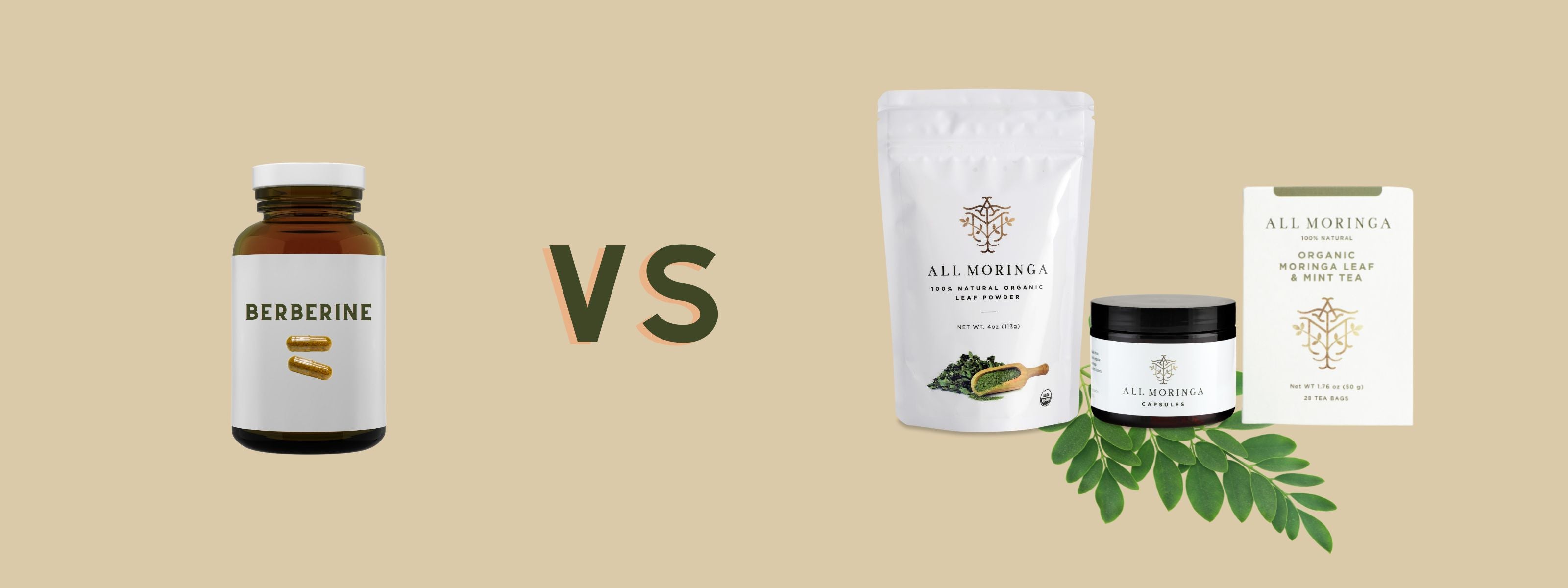
Metabolic health is a cornerstone of overall well-being, playing a pivotal role in how our bodies generate and use energy from the food we eat. It's a complex interplay of processes that impact various aspects of our health including blood sugar levels, cholesterol, and blood pressure. In recent years, the search for natural substances that support metabolic health has garnered significant attention. Among the plethora of natural supplements, Moringa and Berberine emerge as noteworthy mentions.
Moringa, often hailed as a “Miracle Tree,” is a treasure trove of nutrients known to offer a myriad of health benefits, including support for a healthy metabolism. On the other hand, Berberine, a compound found in several plants, has been recognized for its potential in managing blood sugar levels and supporting metabolic wellness.
In this article, we will delve into the rich tapestry of benefits offered by Moringa and Berberine, shedding light on their potential in supporting metabolic health. Furthermore, we aim to provide a comparative analysis to help readers understand the unique and complementary benefits of these natural marvels. So, if you're on a quest for natural support for your metabolism, you're in for an enlightening read. Our discussion will not only deepen your understanding but also guide you on how to make informed decisions when considering natural supplements, especially Moringa, for metabolic support.
Explore the wonders of Moringa and discover a natural path to supporting your metabolic health. Our range of Moringa products is crafted to harness the potent benefits of this remarkable tree, offering a holistic approach to nurturing your metabolism.
The Majestic Moringa: A Leafy Luminary
Historical and Ayurvedic Roots of Moringa
Moringa, often revered as the 'Miracle Tree,' has deep roots in the ancient wellness traditions of Ayurveda. Originating from the Indian subcontinent, it has been cherished for centuries for its health-promoting properties. The Ayurvedic texts laud Moringa as a remedy for a plethora of ailments, signifying its esteemed

place in traditional medicine. Its historical use as a potent herb for balancing body energies (doshas) showcases a time-tested belief in its holistic health benefits.
Nutritional Profile - A Gateway to Metabolic Harmony
The leaves of the Moringa tree are a nutritional powerhouse. Here's a closer look at its nutritional composition and how it may promote metabolic health and blood sugar management:
Vitamins
- Vitamin A: Essential for vision, immune function, and skin health.
- Vitamin C: Known for its antioxidant properties, supporting immune function.
- Vitamin E: Acts as an antioxidant, protecting cells from damage.
-
B-Vitamins
- Vitamin B1 (thiamine): Helps convert nutrients into energy.
- Vitamin B2 (riboflavin): Important for energy production and cellular function.
- Vitamin B3 (niacin): Supports metabolism and DNA repair.
- Vitamin B5 (pantothenic acid): Essential for the synthesis of coenzyme A, which is involved in fatty acid metabolism.
- Vitamin B6 (pyridoxine): Involved in amino acid metabolism, red blood cell production, and the creation of neurotransmitters.
- Vitamin B7 (biotin): Supports metabolic processes and promotes healthy skin, hair, and nails.
- Folate (vitamin B9): Critical for DNA synthesis and repair, and essential during pregnancy to prevent neural tube defects.
Minerals
- Iron: Important for oxygen transport and energy production.
- Calcium: Crucial for bone health and muscle function.
- Magnesium: Supports muscle and nerve function, blood glucose control, and bone health.
- Phosphorus: Plays a key role in the formation of bones and teeth. It also helps the body make ATP, a molecule used for energy storage and transfer.
- Potassium: Helps regulate fluid balance, muscle contractions, and nerve signals, which are important for maintaining energy.
- Zinc: Vital for immune function, DNA synthesis, and wound healing. Zinc also supports normal growth and development during pregnancy, childhood, and adolescence.
Protein (25%)
Moringa leaves are an excellent source of amino acids, which are the building blocks of proteins. Moringa leaves are a complete plant protein, meaning they contain all nine essential amino acids that the human body can't produce independently. These amino acids are crucial for numerous bodily functions, including building and repairing tissues, transporting molecules, and catalyzing chemical reactions. With 18 amino acids, including the nine essential ones, Moringa stands out as a high-quality, plant-based complete protein source. This composition makes it exceptionally beneficial for muscle maintenance and supports overall health and well-being. The 'completeness' of its protein profile is particularly notable in plant-based nutrition.
Fiber
Moringa leaves are a rich source of fiber. Just one cup of chopped moringa leaves provides about 2 grams of fiber. This is about 8% of the recommended daily intake of fiber for adults.
The fiber in moringa leaves is a combination of both soluble and insoluble fiber. Soluble fiber dissolves in water and forms a gel-like substance in the digestive tract. This gel helps to slow down the absorption of sugar into the bloodstream, which can help to manage blood sugar levels. Soluble fiber also helps to bind to cholesterol and bile acids in the digestive tract, which can help to lower cholesterol levels.
Insoluble fiber does not dissolve in water and adds bulk to the stool. This helps to keep the digestive tract moving smoothly and prevents constipation. Insoluble fiber also helps to promote the growth of beneficial bacteria in the gut, which can improve overall gut health.
In addition to its role in digestion, fiber also helps to support a healthy immune system, maintain a healthy weight, and reduce the risk of chronic diseases, such as heart disease and type 2 diabetes.
Antioxidant
Moringa leaves are also known for their antioxidant properties. Antioxidants are compounds that help protect the body against oxidative stress and inflammation, which are often linked to chronic diseases and metabolic disorders. Here are some of the key antioxidants found in Moringa:
- Quercetin: A powerful antioxidant that may help lower blood pressure.
- Chlorogenic Acid: Known to moderate blood sugar levels post meals.
- Beta-sitosterol: A phytosterol with antioxidant and anti-inflammatory properties.
- Vitamin C: As mentioned earlier, an antioxidant that supports immune function.
- Polyphenols: Presence: Moringa leaves are rich in polyphenols, which help combat oxidative stress and inflammation.
The presence of these antioxidants, coupled with essential nutrients, underscores Moringa's potential in supporting metabolic health. Particularly, its ability to help manage blood sugar levels is a notable benefit, making it a worthy consideration for individuals seeking natural support for their metabolic health.
Indulge in the wholesome embrace of Moringa's nutritional bounty by exploring our curated range of Moringa products. Each product is designed to harness the potent benefits of Moringa, providing a natural pathway towards achieving balanced blood sugar levels and robust metabolic health. Discover the holistic wellness Moringa promises and take a step towards nurturing your metabolism the natural way.
Blood Sugar Management and antidiabetic studies
The study "Isothiocyanate-rich Moringa oleifera extract reduces weight gain, insulin resistance, and hepatic gluconeogenesis in mice" explores the therapeutic potential of Moringa oleifera in managing obesity and type 2 diabetes. Key findings include:
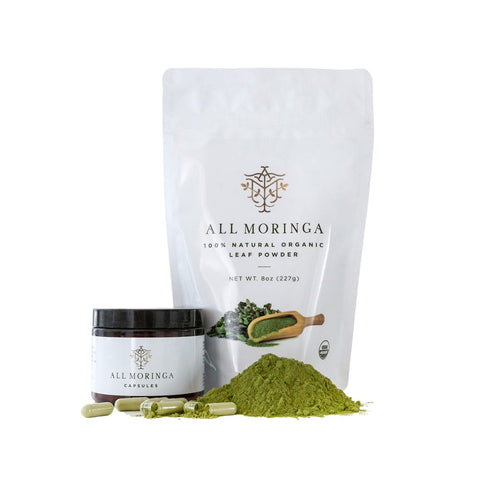
-
Mice fed with a high-fat diet supplemented with Moringa concentrate showed less weight gain, improved glucose tolerance, and better insulin signaling compared to control mice. They also didn't develop fatty liver disease.
-
The study suggests that the bioactive compounds in Moringa, specifically moringa isothiocyanates (MICs), are primarily responsible for these effects. These compounds are shown to inhibit liver gluconeogenesis, leading to increased insulin sensitivity.
-
The results indicate that Moringa oleifera could be an effective dietary component for preventing and treating obesity and type 2 diabetes, due to its impact on weight management, insulin resistance, and inflammation.
This research provides a scientific basis for using Moringa oleifera in dietary interventions for these conditions, emphasizing its potential health benefits.
A 2011 study found that Moringa leaf helped lower blood glucose levels, enhance antioxidant defenses, and reduce lipid peroxidation in diabetic rats. These effects can be attributed to Moringa’s rich array of bioactive compounds such as flavonoids and phenolics, which work synergistically to improve insulin sensitivity and glycemic control. Berberine, on the other hand, is known for its ability to activate AMP-activated protein kinase (AMPK), which plays a crucial role in glucose metabolism, making it a powerful natural compound for managing blood sugar levels.
A study published in the British Journal of Pharmacology and Toxicology explored the hypoglycemic effects of Moringa oleifera ethanolic leaf extract on both diabetic and non-diabetic Wistar rats. The researchers found that Moringa extract significantly reduced blood glucose levels in diabetic rats but not in normal, healthy rats. Administering doses of 250 mg/kg and 500 mg/kg to diabetic rats resulted in a noticeable decrease in blood sugar over several hours, highlighting its potential for managing blood sugar in diabetic conditions. However, in normal rats, the extract did not lower blood sugar, suggesting its specific effectiveness in diabetic cases.
Berberine: The Botanical Beacon
Traditional Use and Scientific Backing of Berberine in Metabolic Health
Berberine, a bioactive compound found in several plants, has a rich history of use in traditional Chinese medicine and Ayurveda for its purported health benefits. Over the centuries, it has been utilized to address a variety of health conditions, signaling its importance in traditional wellness practices.
In recent years, scientific investigations have sought to unravel the efficacy of Berberine in supporting metabolic health. Here's a glimpse into what research reveals:
Blood Sugar Management:
- Studies have demonstrated that Berberine can help manage blood sugar levels by improving insulin sensitivity and reducing glucose production in the liver.
Cholesterol Management:
- Research indicates that Berberine can also aid in managing cholesterol levels by reducing low-density lipoprotein (LDL) cholesterol and triglycerides, while potentially increasing high-density lipoprotein (HDL) cholesterol.
Heart Health:
- Berberine’s potential in supporting heart health is also explored through its ability to manage blood lipid levels and promote cardiovascular wellness.
Weight Management:
- Some studies suggest that Berberine could support weight management efforts by improving metabolic functions.
The scientific backing of Berberine’s benefits in metabolic health showcases its potential as a natural aid in managing metabolic-related conditions. However, while Berberine’s role is acknowledged and well-researched, the natural wellness space is vast, harboring other botanical wonders like Moringa with a diverse array of benefits waiting to be explored.
While Berberine shines in its own right, the botanical realm is vast and verdant with other natural marvels. One such botanical luminary is Moringa, which presents a diverse array of metabolic benefits, possibly offering a broader spectrum of support. As we navigate through the botanical bounties, a deeper dive into Moringa’s multifaceted benefits in the subsequent sections might reveal a more holistic approach to metabolic wellness. So, as you unveil the benefits of Berberine, keep the leafy allure of Moringa in mind, for the journey into natural metabolic support is rich and rewarding.
Comparative Analysis Moringa leaves Vs Berberine (infographic)
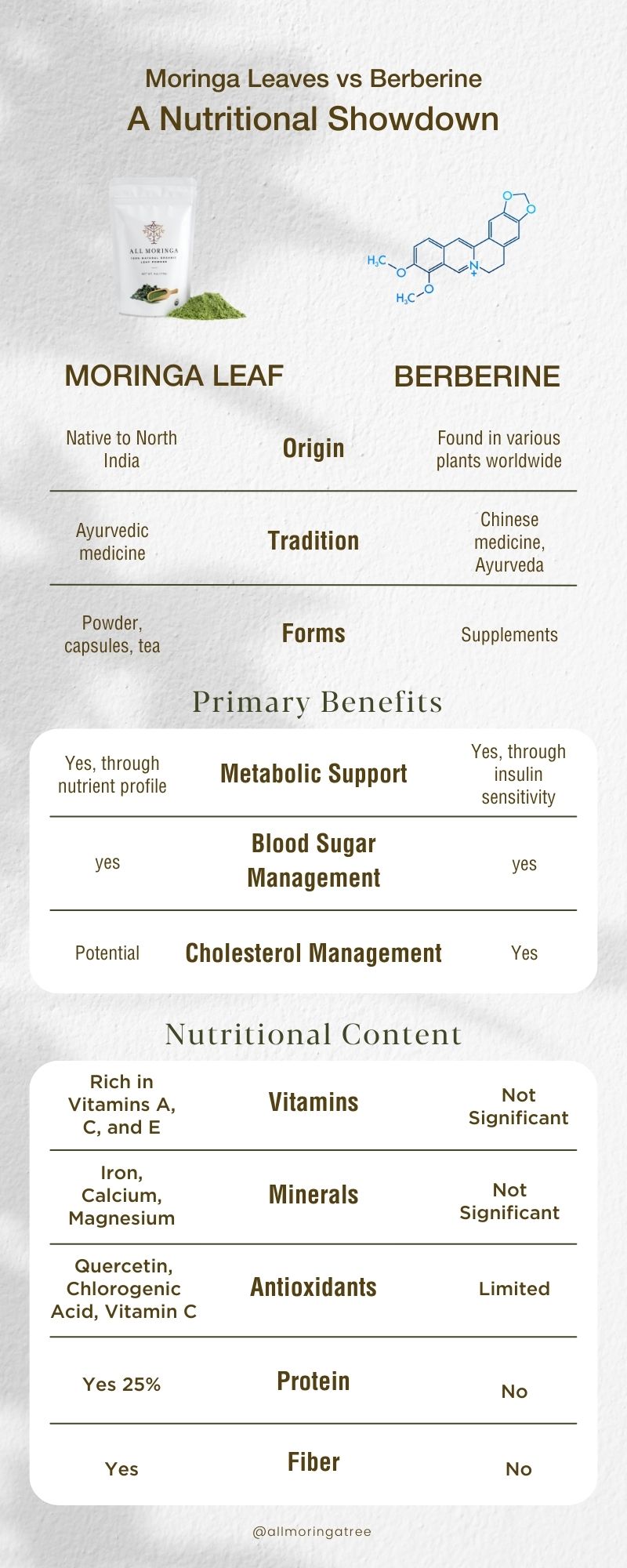
Moringa and Berberine: A Botanical Balance
In the realm of natural supplements, both Moringa and Berberine hold their unique places, each with a distinct set of benefits. Here, we’ll delve into a comparative analysis to provide a clearer perspective on how they stand in relation to each other in supporting metabolic health.
Blood Sugar Management:
- While Berberine is known for improving insulin sensitivity, Moringa too exhibits potential in Natural blood glucose regulation through its rich nutrient profile including chlorogenic acid.
Antioxidant Properties:
- Moringa has an impressive range of antioxidants like quercetin, chlorogenic acid, and vitamin C which combat oxidative stress, a key player in metabolic disorders. Berberine, although not as antioxidant-rich, has its own set of benefits in metabolic modulation.
Nutrient Density:
- Moringa is a nutritional powerhouse with a plethora of vitamins, minerals, and essential amino acids, offering a broader spectrum of health benefits beyond metabolic support.
Ease of Incorporation:
- Moringa, available in various forms like powder, capsules, and teas, can easily be incorporated into daily diets. Berberine, usually found in supplement form, also offers easy incorporation but with a more targeted benefit profile.
Through this comparative lens, it’s evident that while Berberine has a targeted approach towards metabolic health, Moringa offers a holistic avenue with its nutrient-dense profile and antioxidant properties.
Making An Informed Choice
When it comes to choosing between Moringa and Berberine, or considering a complementary approach, it's essential to make an informed decision based on individual health goals, lifestyle, and dietary preferences.
Dosage and Form:
- It's advisable to adhere to recommended dosages whether you choose Moringa or Berberine. Consulting with a healthcare professional for personalized advice is also prudent.
Quality and Purity:
- Opt for products that are certified for quality and purity to ensure you reap the full benefits of these natural supplements.
Complementary Usage:
- Explore the possibility of using Moringa and Berberine in a complementary manner to harness a broader spectrum of metabolic support.
Nature’s Bounty for Metabolic Wellness
The journey into the natural realm of metabolic support unveils the botanical bounties of Moringa and Berberine. Each holds a unique place in traditional and modern wellness, offering a natural pathway to metabolic harmony. As we’ve explored, while Berberine shines with its targeted benefits, Moringa dazzles with its holistic, nutrient-rich profile.
The choice between Moringa and Berberine, or the consideration of a complementary approach, opens avenues to embrace nature’s pharmacy for metabolic wellness. As you explore these botanical beacons, you’re not only nurturing your metabolic health but also stepping into a community that values natural, holistic wellness.
Discover the wholesome embrace of Moringa’s nutritional bounty and Berberine’s metabolic modulation by delving into our curated range of products. Your journey towards metabolic wellness is enriched by the natural goodness these botanical marvels offer.
For readers interested in exploring how Moringa compares to pharmaceutical options like Ozempic for managing blood sugar, we have an insightful article on Moringa vs. Ozempic: A Natural Path to Blood Sugar Management and Wellness.
To learn more about the benefits of the Moringa leaves for health and skin click here.
References:
-
Moringa leaves and blood sugar control diabetes :
-
- Moringa oleifera leaf supplementation as a glycemic control strategy in subjects with prediabetes: https://pubmed.ncbi.nlm.nih.gov/35010932/
- Effects of Moringa oleifera on Glycaemia and Insulin Levels: A Review of Animal and Human Studies: https://pubmed.ncbi.nlm.nih.gov/31810205/
- Effect of Ethanolic Leaves Extract of Moringa oleifera on Blood Glucose Levels
https://www.airitilibrary.com/Article/Detail/20442467-201102-201507070011-201507070011-1-4 - Evaluation of antidiabetic and antioxidant activity of Moringa oleifera in experimental diabetes
https://onlinelibrary.wiley.com/doi/full/10.1111/j.1753-0407.2011.00173.x
-
-
Berberine and blood sugar control:
- Berberine: A Multifaceted Alkaloid in Clinical Practice for the Treatment of Type 2 Diabetes Mellitus: https://pubmed.ncbi.nlm.nih.gov/23118793/
- Berberine for the Treatment of Type 2 Diabetes Mellitus: A Review of Clinical Trials: https://www.ncbi.nlm.nih.gov/pmc/articles/PMC3478874/
-
Moringa leaves and metabolism:
- Moringa oleifera Lam.: A Review on Its Nutritive Importance and Its Role in Human Health: https://www.ncbi.nlm.nih.gov/pmc/articles/PMC10425832/
- Moringa oleifera Leaf Extract Improves Metabolic Syndrome and Insulin Resistance in Rats Fed a High-Fat Diet: https://www.tandfonline.com/doi/full/10.1080/13813455.2020.1762661
-
Berberine and metabolism:
- AMPK Activation by Berberine: A Review of Potential Mechanisms and Therapeutic Implications: https://pubmed.ncbi.nlm.nih.gov/32445451/
- Berberine Improves Insulin Sensitivity by Activating AMPK and Inhibiting Inflammation: https://pubmed.ncbi.nlm.nih.gov/27887947/
FDA Disclaimer
*This statement has not been evaluated by the Food and Drug Administration. This product is not intended to diagnose, treat, cure, or prevent any disease.

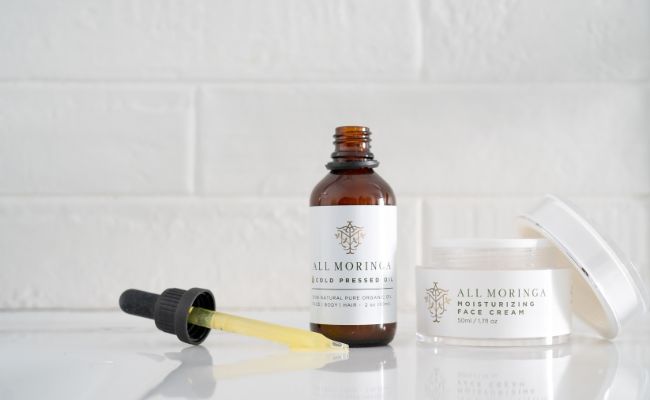
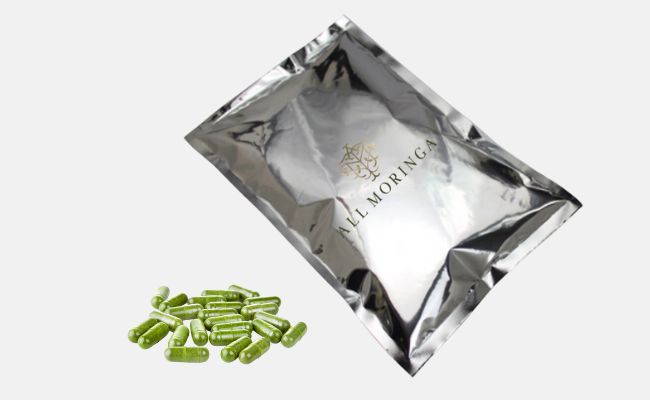
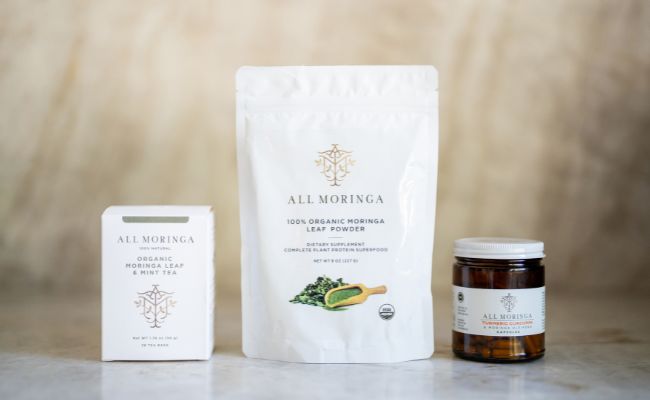




Leave a comment
This site is protected by hCaptcha and the hCaptcha Privacy Policy and Terms of Service apply.